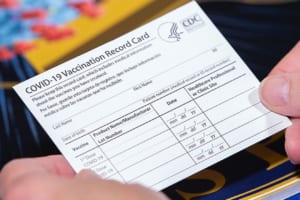In the United States, maintaining accurate and up-to-date records is crucial for individuals holding Lawful Permanent Resident status and those on nonimmigrant visas or in other status. The U.S. Citizenship and Immigration Services (“USCIS”) requires that foreign nationals promptly update their address whenever they move.
Importance of Address Updates:
The requirement to update one’s address with the USCIS is based on the government’s need to keep accurate and current records of individuals residing in the country. This ensures that important documents, such as green cards and other immigration-related correspondence, are sent to the correct address. Additionally, it allows immigration authorities to effectively monitor individuals’ compliance with U.S. immigration laws and regulations.
Lawful Permanent Residents:
Lawful Permanent Residents, commonly known as green card holders, are required to report any change of address within 10 days of moving to a new residence. This obligation is outlined in Section 265 of the Immigration and Nationality Act.
Nonimmigrant Visa Holders and Others:
Individuals in the U.S. on nonimmigrant visas, such as H-1B, F-1, or J-1, and those in other status, are also subject to the address update requirement to notify the USCIS of any change of address within 10 days of moving. This ensures that the government has accurate information about their whereabouts during their authorized stay in the United States.
Consequences of Non-Compliance:
Failure to comply with the address update requirement can have severe consequences for individuals. Apart from potential fines and delays in processing immigration benefits, noncompliance may lead to a lapse in communication between the USCIS and the individual. This could result in missed notifications about important immigration matters, including interviews, appointments, or even changes in immigration policies.
How to Update Address Information:
The USCIS has launched a new Enterprise Change of Address (“E-COA”) self-service tool to allow individuals with pending applications, petitions, or requests to update their address with USCIS more easily. The USCIS hopes the E-COA will significantly improve the speed and efficiency of the process for address changes.
Traditionally, Lawful Permanent Residents and foreign nationals can update their address by filing Form AR-11, Alien’s Change of Address Card, either online or by mail. Visit the USCIS webpage at https://www.uscis.gov/addresschange to read and understand your options for making the change of address request.
Now, USCIS encourages residents and foreign nationals to submit their change of address request to USCIS through a USCIS online account and provides instructions on its How to Create a USCIS Online Account page.
However, it is not required that you create an online account. Most foreign nationals can file a paper Form AR-11, Alien’s Change of Address Card. For some exceptions, refer to the bottom of the https://www.uscis.gov/addresschange page.
To file the change of address online you should visit https://egov.uscis.gov/coa/displayCOAForm.do and begin answering the questions at the bottom of that page. This will start the online application process.
Change of Address with the U.S. Postal Service:
USCIS notes that changing your address with the U.S. Postal Service (USPS) will not change your address with USCIS and USPS will not forward your mail from USCIS. Please update your information with both USCIS and USPS.
If you have any questions about U.S. visas or immigration, contact us at info@enterlinepartners.com and speak with a U.S. immigration attorney in Ho Chi Minh City, Manila and Taipei.
ENTERLINE & PARTNERS CONSULTING
Ho Chi Minh City, Vietnam Office
146C7 Nguyen Van Huong St, Thao Dien Ward,
District 2, Thu Duc City
Ho Chi Minh City, Vietnam
Tel: +84 933 301 488
Email: info@enterlinepartners.com
Facebook: Enterline & Partners – Dịch vụ Thị thực và Định cư Hoa Kỳ
YouTube: @EnterlineAndPartnersConsulting
Website: http://enterlinepartners.com
Manila, Philippines Office
Tel: +63 917 543 7926
Email: info@enterlinepartners.com
Facebook: Enterline and Partners Philippines
Website: https://enterlinepartners.com/language/en/welcome/
Copyright 2024. This article is for information purposes only and does not constitute legal advice. This article may be changed with or without notice. The opinions expressed in this article are those of Enterline and Partners only.








